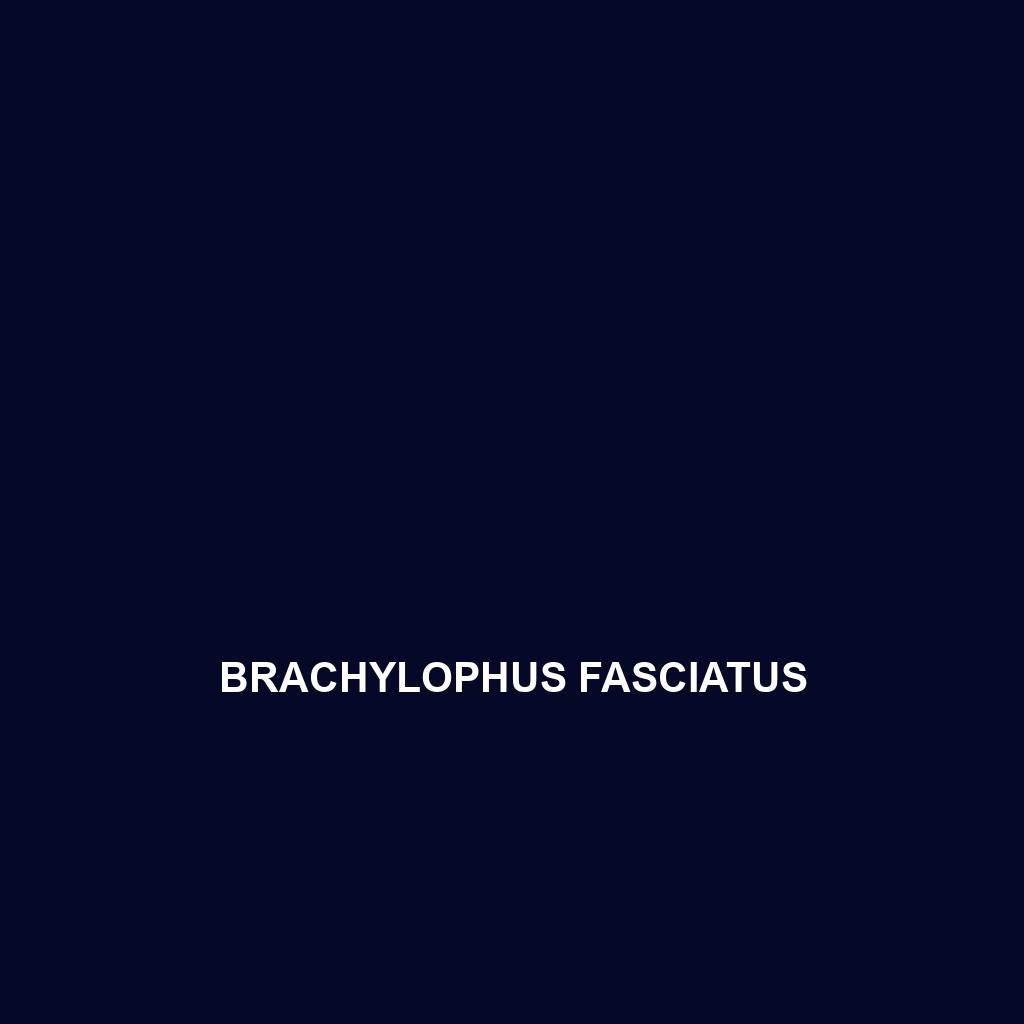Brachylophus fasciatus
Common Name: Brachylophus fasciatus
Scientific Name: Brachylophus fasciatus
Habitat
Brachylophus fasciatus, commonly known as the Fiji Banded Iguana, is primarily found on the islands of Fiji, particularly in the islands of Viti Levu and Vanua Levu. This species typically inhabits tropical rainforest environments, preferring areas with abundant tree cover. The iguana is also found in coastal areas, where it can bask in the sun and access its preferred food sources. The warm, humid climate of these islands is crucial for its survival.
Physical Characteristics
This distinctive lizard can grow up to 75 centimeters (about 29 inches) in length. Brachylophus fasciatus exhibits vibrant coloration, typically showcasing a green body adorned with striking yellow or white bands and stripes. Its robust build, strong limbs, and exceptionally long tail provide it with the agility needed to navigate through the treetops of its forest habitat. These features make it a remarkable specimen among iguana species.
Behavior
Brachylophus fasciatus is primarily diurnal, which means it is most active during the day. These iguanas are known for their social interaction within groups, often seen basking together on branches. They display a range of communicative behaviors, including head bobbing and territorial displays. The iguana’s ability to climb expertly allows it to evade predators and forage effectively in its arboreal habitat.
Diet
This species is herbivorous, primarily consuming a diet rich in leaves, flowers, and fruits. Common food sources include hibiscus flowers, guava leaves, and other native Fijian vegetation. Brachylophus fasciatus has adapted feeding habits that are essential for its survival, as they rely heavily on the availability of these plant materials in their home ranges.
Reproduction
Brachylophus fasciatus engages in seasonal breeding, with mating typically occurring during the warmer months of the year. After a gestation period of about 60 days, females lay clutches of 2 to 7 eggs in sandy soil or leaf litter. The hatchlings emerge after approximately 90 days, and they are independent from birth, growing into adults within a few years. Parental care is minimal after egg-laying.
Conservation Status
The Fiji Banded Iguana is currently classified as vulnerable by the International Union for Conservation of Nature (IUCN). Habitat loss due to deforestation, agricultural expansion, and the introduction of invasive species poses significant threats to its survival. Conservation efforts are underway to help protect its natural habitat and promote awareness of its plight.
Interesting Facts
One fascinating aspect of Brachylophus fasciatus is its unique adaptation to its environment, including its ability to change from a vivid green to a darker color when stressed. Additionally, this iguana can live for up to 20 years in captivity, providing opportunities for further research and education about its ecological role and behaviors.
Role in Ecosystem
Brachylophus fasciatus plays a critical role in its ecosystem as a herbivore, contributing to the balance of native plant populations. By feeding on various foliage, it helps maintain the health of the forest ecosystem. Furthermore, it serves as prey for larger predators, making it an integral part of the food web within its natural habitat.
